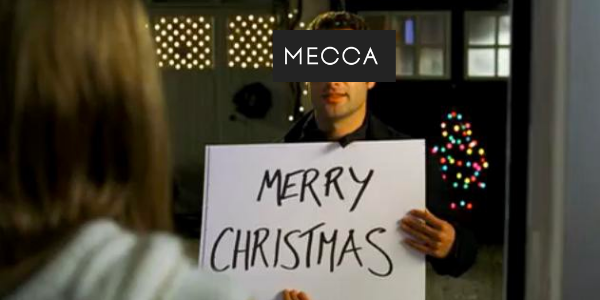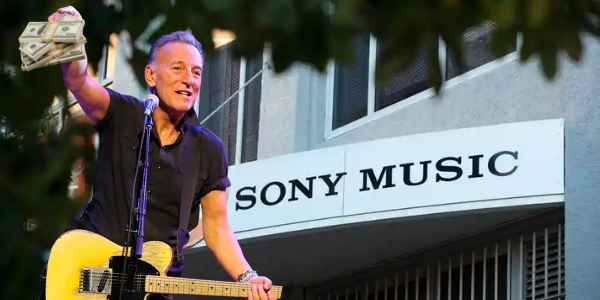Get smarter than your boss in 5 minutes with today's business news.
💄Mecca launches the first-ever gift card billboard
🎤Bruce Springsteen sells his music rights to Sony
📺YouTube TV and Disney sort out their differences
Hey hey, Flux fam!
Here's everything you need to know today - in under 3 minutes.
💄Mecca launches the first-ever gift card billboard
🎤Bruce Springsteen sells his music rights to Sony
📺YouTube TV and Disney sort out their differences
Tax company H&R Block have filed a trademark infringement lawsuit over Square's plans to change its name to Block. They reckon Square is capitalising on H&R Block's good (old) name, and could confuse customers.

Background: Mecca is the Aussie beauty company that started back in the late 90s. They brought hundreds of beauty brands and products under the one roof, starting with a single store in 1997.
What happened: Nowadays, this crew have more than 100 stores across Australia and New Zealand, and bring in nearly $500 million a year.
What else: Now, they're taking out-of-home advertising to the nek level. They've developed Australia's first gift card billboard - aka billboards where passers-by can buy Mecca gift cards from the bus stop.
💡Out-of-home (OOH) advertising is any visual advertising found outside your home. That’s things like billboards, ads on bus shelters (or buses) or in transit areas like trains and airports.
💡OOH has been important for companies who want their brands and products to get noticed by the general public for yonks. But, as the world goes digital, companies have had to think of new ways to modernise this kind of advertising.
💡Cue: digital out-of-home (DOOH) advertising. These are digital ads, which can be triggered by specific OOH events, like the weather or traffic jams. And Mecca's gift card billboards is just another evolution of this.

Background: Bruce Springsteen dominated the late 70s and 80s with hits like Born In The USA and Blinded By The Light. And now, he's just sold his music rights to Sony Music Entertainment.
What happened: This crew earn around US$9 billion in revenue each year. And they're the big guns behind Beyoncé, Mariah Carey, Britney and, let's not forget, Mr. Worldwide (aka Pitbull).
What else: It means when you stream a Springsteen song from Spotify, YouTube or even TikTok, Sony will get a small clip. And this deal adds to the ongoing boom in the acquisition of musicians' catalogues.
💡Catalogue acquisition is where a singer or songwriter sells 100% of their music rights. In other words, they forfeit the income and rights to each of their songs to another party (i.e. Sony).
💡Over the last few years, a heap of artists have been selling their music rights. There was: Calvin Harris, Stevie Nicks, Bob Dylan, The Killers, Imagine Dragons...and more.
💡Why all of a sudden? Well, the live touring income of artists has been slashed by about 90% over the last 12 months so artists need to generate cash in some way.
.gif)
Background: YouTube TV is a paid streaming service which lets people watch TV from free-to-air channels and pay-TV channels. We're talkin' BBC, Animal Planet...and a bunch of Disney-owned channels like ESPN, ABC and FX.
What happened: Disney's contract with YouTube TV expired last Friday, and these two companies failed to re-negotiate a new contract before that. So, YouTube TV dropped Disney's channels.
What else: Now, after what we can only imagine was a rowdy weekend of negotiating...these two have seemingly worked it out. And this 'carriage dispute' finally came to an end, with YouTube restoring access to all Disney's channels.
💡A carriage dispute happens when content providers, like YouTube and Disney, disagree over the rights and terms to 'carry' specific channels.
💡When these carriage disputes happen, sometimes everyone misses out...including us customers, who cop content 'blackouts' when providers can't come to agreements. And nowadays, this is happening more and more often.
💡In 2010, there were only 8 blackouts. In 2019? There were 276. And it's because with so many streaming services out there...the broadcast industry is a lot more crowded - and competitive, which means it can take longer to reach a deal.
Sign up for Flux and join 100,000 members of the Flux family